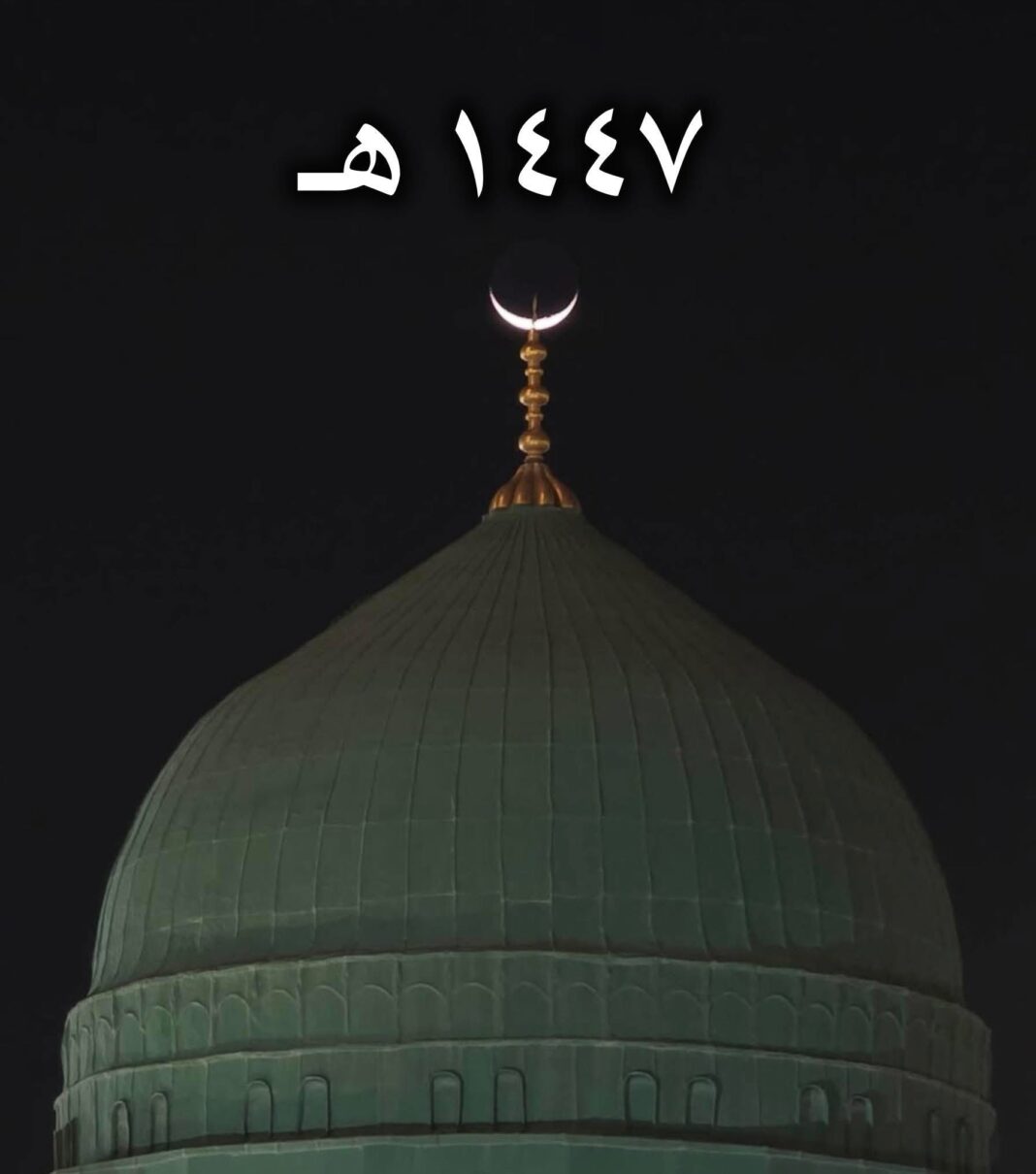The Supreme Court of the Kingdom of Saudi Arabia has officially announced that Thursday, June 26, 2025, corresponds to 1st Muharram 1447 AH, marking the beginning of the new Islamic lunar year. The announcement followed the successful sighting of the crescent moon on the evening of Wednesday, Dhul Hijjah 29, 1446 AH.
READ MORE: Armenian Genocide Recognition Gaining Ground in Muslim World, Says Scholar
According to a report by the Saudi Press Agency (SPA), the moon sighting was confirmed by the Crescent Sighting Committee, based on credible observations across the country. In its official statement, the court extended prayers for the well-being of King Salman bin Abdulaziz and Crown Prince Mohammed bin Salman, while also emphasizing the hope for unity and blessings for Muslims around the globe in the new year.
The update was also published by @HaramainInfo, the verified social media account for the Two Holy Mosques in Makkah and Madinah, which posted:
“1st Muharram 1447 – Thursday, 26 June 2025. Crescent for the new Islamic year was sighted this evening. The new Hijri year begins tomorrow.”
Simultaneously, in Nigeria, the Sultan of Sokoto, His Eminence Alhaji Sa’ad Abubakar III, through the National Moonsighting Committee, declared the same date for the start of the Islamic year. In a statement released via their official X (formerly Twitter) handle, they wrote:
“His Eminence, the Sultan of Sokoto has declared Thursday, 26/6/2025 as 1st Muharram 1447 AH. The crescent for the new Islamic year and the month of Muharram was SEEN today.”
Ashura 1447 AH: A Day of Spiritual Significance
With the confirmation of 1st Muharram, it follows that the Day of Ashura, which falls on the 10th of Muharram, will be observed on Saturday, July 5, 2025. Ashura is a day steeped in religious importance across the Islamic world. It is recommended in the Sunnah to fast on this day, either by pairing it with the 9th (Tasu’a) or 11th of Muharram for increased spiritual reward.
Ashura commemorates multiple key events in Islamic history. It marks:
-
The deliverance of Prophet Musa (Moses) and the Children of Israel from Pharaoh.
-
The martyrdom of Imam Hussain ibn Ali, the grandson of the Prophet Muhammad (peace be upon him), at the Battle of Karbala, a defining moment especially for Shia Muslims.
Fasting on Ashura is highly encouraged for Muslims of all traditions, offering an opportunity for reflection, repentance, and spiritual renewal.
Understanding the Islamic Hijri Calendar
The Islamic calendar, also known as the Hijri calendar, began in 622 CE with the historic migration (Hijrah) of the Prophet Muhammad (peace be upon him) from Makkah to Madinah. This lunar calendar comprises 12 months, each beginning with the confirmed sighting of the new moon.
The months in the Islamic calendar are as follows:
-
Muharram
-
Safar
-
Rabi’ al-Awwal
-
Rabi’ al-Thani
-
Jumada al-Awwal
-
Jumada al-Thani
-
Rajab
-
Sha’ban
-
Ramadan
-
Shawwal
-
Dhul Qa’dah
-
Dhul Hijjah
Being lunar-based, the Hijri calendar is approximately 10 to 12 days shorter than the Gregorian solar calendar, causing Islamic months and celebrations to shift each year.
Muharram: A Sacred Month of Reflection
Muharram is one of the four sacred months in Islam where warfare and conflict are traditionally discouraged. It is a time for heightened acts of worship, fasting, charity, and spiritual introspection. Many Muslims take this opportunity to renew their intentions, offer more prayers, and seek closeness to Allah as the year begins.
As the Muslim Ummah welcomes 1447 AH, believers are encouraged to reflect on the lessons of the past and step into the future with hope, unity, and devotion.
Conclusion
The confirmation of the Islamic New Year 1447 AH on Thursday, June 26, 2025, by both Saudi Arabia’s Supreme Court and the Sultan of Sokoto in Nigeria, highlights the unity and shared traditions of the global Muslim community. As the sacred month of Muharram begins, Muslims around the world are reminded of the importance of spiritual renewal, remembrance of historic events like Ashura, and the pursuit of peace and piety.



